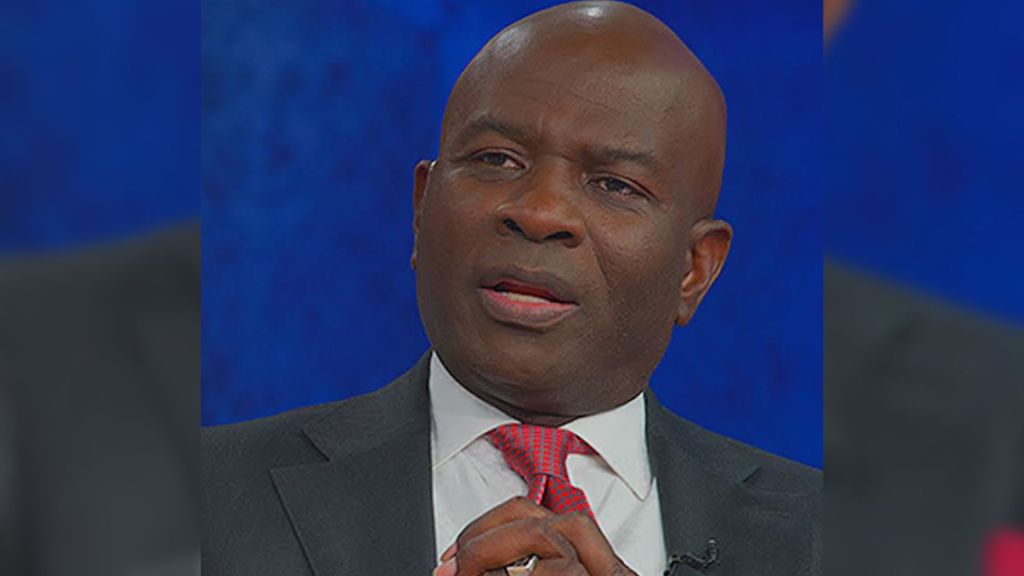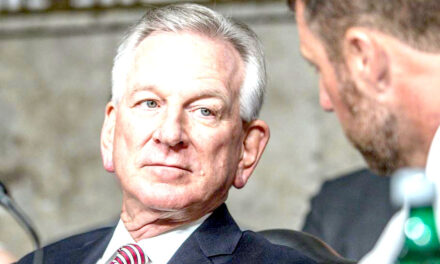By Tashi McQueen
AFRO Staff Writer
tmcqueen@afro.com
Sitting in his polished Washington D.C. office, Armstrong Williams, a man of many titles, speaks with the authority of someone who understands both power and the press.

Photo Credit: Photo courtesy of Howard Stirk Holdings
Williams, 66, has fulfilled an array of roles throughout his lifetime, including conservative political commentator, social visionary, entrepreneur, media mogul and author.
Williams is the founder and CEO of Howard Stirk Holdings, a broadcast company that owns several broadcast stations throughout the country. He is one of the largest minority broadcast television owners in the U.S.
In addition to regular television appearances, Williams frequently shares his insights and news updates through columns and social media videos.
Williams sat down with the AFRO to address a variety of topics, including controversies surrounding his recently attained co-ownership of the Baltimore Sun.
AFRO: Can you elaborate on what your childhood was like? Can you describe your family structure and how it shaped your early years?
Armstrong Williams: We had a huge family ranch with thousands of swine, cattle and lots of tobacco. My family was big enough that we could create our own sports team. I grew up in a loving household that emphasized education. We traveled through books. We had no neighbors– as the farmer’s life was an isolated one– but it was a fabulous time.
AFRO: Can you specifically speak to what it was like growing up in Marion, S.C. as a young Black man?
AW: Living the farm life, we were protected, but I do remember one incident. We awakened one morning, and my father’s horse barn was on fire and his beautiful red horse was burning. We saw three White gentlemen walking away with gas canisters in their hands, and I never forgot the anger from my brothers.
I remember my brother saying, “The White man will never allow us to be successful no matter what we do. They will always have their foot on our neck.”
In a time of loss, where my dad should have been angry, he instead said, “They were not three White men, they were three individuals filled with anger, resentment and jealousy. They don’t represent an entire race, just like when Black people do things that we’re not proud of, they don’t represent our entire culture. You must see people as individuals.”
That had a profound impact on my outlook on life growing up.
AFRO: Who or what inspired you to pursue a career in entrepreneurship and political commentary?
AW: My father was my hero when it came to entrepreneurship, and my mother when it came to moral striving. I grew up in an entrepreneurial household. Farming is a business, and it’s one of the biggest businesses in America. My mother taught me there’s a righteous way, and if you follow this way, you’re going to have trouble, you’re going to have obstacles, but your pathway will be a lot smoother.
AFRO: Can you talk about how you respond to criticism regarding your views and associations with political figures?
AW: Whether it’s through my columns, my podcast, my television stations, or my ownership of the Baltimore Sun, I get so much pushback. I love it because it helps me grow. Once, a reader of my columns pointed out that I’m always quoting somebody. I noticed it as well. Because of this, in my last four columns, I didn’t use any quotes.
AFRO: Speaking of now owning the Baltimore Sun, what has this accomplishment meant to you?
AW: It’s a lot of work, let me just tell you, but I should acknowledge the historical importance of being an owner who happens to be Black. It allows me to elevate local voices, and prioritize stories that directly impact Baltimore’s diverse communities with an emphasis on social issues, education, healthcare and public safety.
AFRO: What are your hopes and goals for the Baltimore Sun?
AW: We have to broaden the scope of coverage to include more community-focused reporting, and shout-out neighborhood successes, challenges and unique cultural aspects. We have to modernize our content delivery and enhance the digital content, making it more accessible and engaging. Another thing we have to do is build trust. I know a lot of people are skeptical, because of the new ownership. We have to build and strengthen trust with all communities by providing honest, unbiased journalism that speaks to the relevant experiences of Baltimore’s diverse population. We’re beginning to do that.
AFRO: How do you specifically address people’s concerns about the integrity of the Baltimore Sun with recent partnerships with Fox45, and employees raising concerns and leaving the Sun?
AW: The Baltimore Sun will always have its identity, totally separate from Fox 45. While there are stories that we may share that we come to similar conclusions on, you will not see – in terms of our news, and our content – where their brand is spilling over into ours. I know people believe that the Baltimore Sun could become Fox 45 because of my business partner David Smith, but that’s why he has a business partner. There are some people, because of our ownership, who decided they don’t want to work for the Sun anymore, and I have to respect that.
AFRO: Last year a former Baltimore Sun employee, Madeleine O’Neill, was reportedly fired unjustly. Can you respond to this?
AW: You have to understand the whole story. Reporters come in on a 90-day probation. Either we continue with that employee, or we decide not to continue. No employee has ever been fired, or asked to leave under our watch. If a reporter decides to go, that is their decision and their decision alone. You’re going to have situations where employers and employees are going to part ways. That’s part of the process, and sometimes it’s better for both parties. As a CEO and an owner, you’ve got to recognize that, and I don’t consider that as being harsh. It’s just the way business works.
AFRO: What advice would you offer for young Black men who see your work and are inspired by it, but may not have the level of support that you had in your childhood?
AW: Everybody needs inspiration. Even beyond my parents, a number of stories and people inspired me. Some of our men are so damaged, they don’t know what it’s like to have a father figure. Just to hear a man raising their voice–if that’s not what they’re accustomed to–brings about a distrust. What they must seek are mentors, and read books. There is so much information out there on the internet now as well.
The post Armstrong Williams: Meet the man who went from farming to media mogul appeared first on AFRO American Newspapers.












